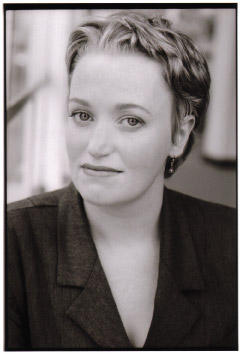Sunday, December 04, 2005
Learning to Fail
I've just finished a five-day improv workshop with some amazing gifted 7th-graders. It was a truly awesome experience, I had huge fun and I learnt so much! So did the participants, according to their evaluations.
One thing that really stood out for me when reading their feedback forms was that almost all of them mentioned that we had encouraged them to fail. I regularly yelled out things like "Fail!" "Get into trouble!" "Failure is good!" I reminded them that as they had never done this before, it was unreasonable to expect that they would be good at it. Watching a face clear when this insight is internalized is magical.
Gifted kids often struggle with only feeling valued for what they can do, rather than who they are as people. Although not all fall into the trap, perfectionism is a natural consequence of getting approval for achievements. Emphasizing a form of learning that is experimental, failure-based, and where advance planning actually makes things worse, gives people permission to unlock their creativity. I was thrilled to find out that they were listening (!) but more importantly that they had felt safe enough to make mistakes. Improv workshops make it easy and fun to experience unqualified approval for taking risks.
I wish I had enough expertise with English to convey to you the utter joy of knowing that I am living "on purpose", doing the things I am supposed to do with my life. It is a very deep satisfaction that is worth far more than money. Very cool.
Technorati tags: gifted improv right livelihood
One thing that really stood out for me when reading their feedback forms was that almost all of them mentioned that we had encouraged them to fail. I regularly yelled out things like "Fail!" "Get into trouble!" "Failure is good!" I reminded them that as they had never done this before, it was unreasonable to expect that they would be good at it. Watching a face clear when this insight is internalized is magical.
Gifted kids often struggle with only feeling valued for what they can do, rather than who they are as people. Although not all fall into the trap, perfectionism is a natural consequence of getting approval for achievements. Emphasizing a form of learning that is experimental, failure-based, and where advance planning actually makes things worse, gives people permission to unlock their creativity. I was thrilled to find out that they were listening (!) but more importantly that they had felt safe enough to make mistakes. Improv workshops make it easy and fun to experience unqualified approval for taking risks.
I wish I had enough expertise with English to convey to you the utter joy of knowing that I am living "on purpose", doing the things I am supposed to do with my life. It is a very deep satisfaction that is worth far more than money. Very cool.
Technorati tags: gifted improv right livelihood
Comments:
<< Home
The affective aspect of giftedness is generally not acknowledged to the extent that it should be. Nor for that matter is the role emotion plays in determining if an intellectual experience results in learning.
Middle school is a critical age. Developmentally, even though gifted children are often well ahead of their peers their brains are ready for new challenges they could not have handled in elementary school. Socially, we lose a lot of gifted kids - particularly white girls and minority boys - who elect to tune out in order to better fit with their peer's cultural expectations.
Good for you for honing in on that age group - I find 7th and 8th graders can (sometimes) have the best combination of child and adult qualities for learning of any age cohort.
Middle school is a critical age. Developmentally, even though gifted children are often well ahead of their peers their brains are ready for new challenges they could not have handled in elementary school. Socially, we lose a lot of gifted kids - particularly white girls and minority boys - who elect to tune out in order to better fit with their peer's cultural expectations.
Good for you for honing in on that age group - I find 7th and 8th graders can (sometimes) have the best combination of child and adult qualities for learning of any age cohort.
Kudos to you! How can anyone, gifted or not, learn or appreciate the value of learning without failure? Failure leads to questioning and experimentation with otherwise untested concepts. The result is growth and innovation.
The best teacher my sons ever had encouraged his students to "dare to make a mistake everyday". This was a teacher who was exceptional in his abilities to reach students at every end of the spectrum. He possessed the rare ability to appreciate people for who they are at any given moment, without judgement. What a true gift that was!
Even though this special man has now passed on, his lessons are remembered and utilized every day. What a fantastic legacy!
Post a Comment
The best teacher my sons ever had encouraged his students to "dare to make a mistake everyday". This was a teacher who was exceptional in his abilities to reach students at every end of the spectrum. He possessed the rare ability to appreciate people for who they are at any given moment, without judgement. What a true gift that was!
Even though this special man has now passed on, his lessons are remembered and utilized every day. What a fantastic legacy!
<< Home


